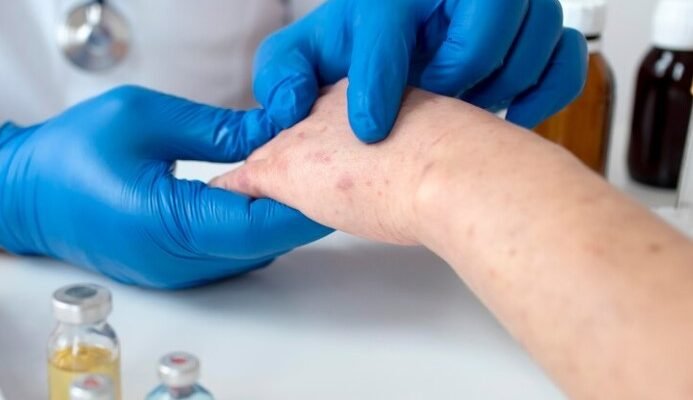Post-Surgery Infections May Mainly Be Caused by Skin Bacteria

Surgical infections have long been a concern for patients undergoing medical procedures. However, groundbreaking research now suggests that the culprits behind these post-surgery infections might be closer to home than we previously thought. Rather than external contamination, it appears that bacteria residing on our skin could be the primary cause of wound infections after surgery.

The Skin Microbiome: A Hidden Culprit
Traditionally, hospitals have maintained strict hygiene standards to prevent infections. Sterilizing surgical equipment, following protocols for surgical attire, and monitoring airflow in operating rooms are common practices. Yet, despite these efforts, surgical site infections (SSIs) continue to affect approximately 3% of patients who undergo surgery. These infections contribute significantly to healthcare costs and can lead to hospital readmissions and even death.
Unmasking the Skin’s Role
To investigate the role of skin bacteria in SSIs, researchers at the University of Washington in Seattle conducted a study involving over 200 individuals who underwent spinal surgery. The results were surprising: virtually all of the SSIs encountered originated from the patient’s microbiome, rather than pathogens introduced from the hospital environment or the operating room. These findings challenge the conventional wisdom that external contamination is the primary source of surgical infections.
Bacteria Already on Your Skin
The study analyzed skin swabs collected before and after spinal surgery. Among the 204 participants, 14 developed wound infections. Strikingly, 12 of these cases involved bacteria that were already part of the individuals’ skin microbiomes before surgery. These skin-residing bacteria, such as Enterococcus faecalis, played a significant role in post-operative infections.
Antibiotic Resistance and Tailored Therapy
Another concerning aspect emerged: 59% of the infection-causing organisms identified in the study were resistant to pre-surgery antibiotics administered intravenously to all participants. This resistance underscores the need for personalized antibiotic therapy. By characterizing antibiotic resistance traits in the microbiome before surgery, clinicians can tailor treatment to each patient, maximizing effectiveness.
Future Directions
While these findings shed light on the skin’s role in SSIs, maintaining a clean hospital environment and using sterile surgical instruments remain essential. Hospitals must continue their rigorous infection control practices. However, understanding the skin microbiome’s impact on surgical outcomes opens avenues for further research. Future studies could explore optimal methods for sterilizing patients’ skin before surgery, potentially reducing the risk of post-operative infections.




